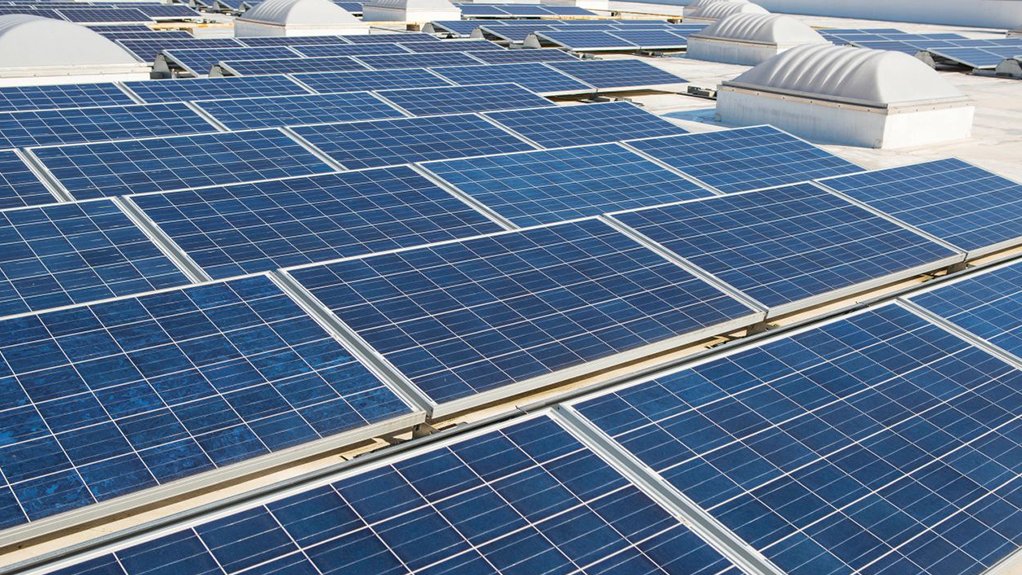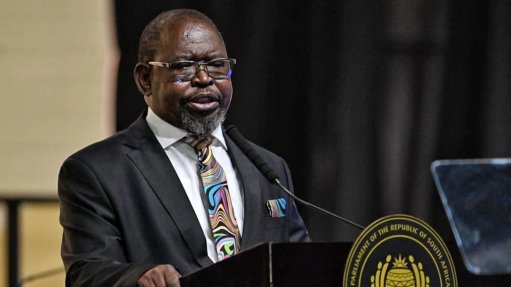Local energy not managed efficiently


TRANSFORMATIVE DEVELOPMENTS The decreasing cost of renewable-energy technologies, such as rooftop solar photovoltaic, are one of the developments transforming South Africa’s energy market
South Africa is not using its world-class renewable energy resources to drive energy efficiency, says independent conservation organisation World Wide Fund for Nature South Africa (WWF-SA) urban futures project manager Louise Scholtz.
“If we were, South Africa’s Integrated Resources Plan 2019 would have made provision for a much more aggressive roll-out of renewable energy.
Encouragingly, nonprofit organisation GreenCape’s ‘Energy Services: Market Intelligence Report 2019’ states that five major developments are transforming South Africa’s energy market from “a monopoly model to a distributed generation model of multiple smaller generators, buyers and sellers”.
These developments are rising energy prices; the decreasing cost of renewable-energy technologies, such as rooftop solar photovoltaic (PV); accreditation bodies assuring the technical competence of installers; supportive energy policies and regulations by local and national government; innovative energy financing programmes and incentives.
“In turn, these developments create significant opportunities for renewable-energy investors and businesses, in particular equipment suppliers, project developers, technical advisers and financial investors.”
Scholtz describes energy efficiency in South Africa as patchy, particularly when it comes to solar thermal application in high potential industries, such as agri-processing, because there is little knowledge about the benefits, electricity is still relatively cheap, and coal even more so, compared with solar thermal alternatives, while those financing these systems struggle to loan financing from commercial banks.
In addition, incentives are limited, and the carbon tax introduced last year is arguably too low to make a compelling case for companies to invest in improving their energy management, she adds.
Incentives Lacking?
The South African National Energy Development Institute (SANEDI) promotes energy efficiency, in collaboration with its stakeholders, by implementing projects, such as the 12L income tax incentive under the Income Tax Act.
SANEDI explains that the incentive – promulgated in 2013 and extended for three years in the 2019 Budget Speech – enables businesses to claim a tax deduction of 95c/kwh saved on energy consumption.
Although the incentive allows for a tax deduction for all energy carriers, it excludes renewable-energy sources. However, Section 12B of the Income Tax Act provides a capital allowance for movable assets used to produce renewable energy and equates to a 28% deduction on a business’ income tax, according to the Western Cape government website.
However, Scholtz points out that a study titled ‘The role of tax incentives in encouraging energy efficiency in the largest listed South African businesses’ undertaken by Stellenbosch University School of Accountancy’s Mareli Dippenaar indicates that businesses do not think that the present tax incentives are particularly effective.
The study concludes that improving the available renewable-energy and energy efficiency tax incentives might result in more businesses considering the implementation of renewable-energy or energy efficiency projects.
It, therefore, recommends that the available tax incentives be expanded and/or the qualifying criteria be simplified.
Solar Thermal Underexploited
Scholtz emphasises that there is great potential for certain industries, such as the textile and agri-processing sectors, to adopt solar thermal technology to improve energy efficiency by reducing their dependence on fossil fuels to heat water using boilers.
“South Africa has some of the highest levels of solar irradiation in the world and while domestic and industrial use of PV technology to generate electricity has gained traction, the use of solar thermal technology for industrial process heat has not attracted much attention,” highlights a report by WWF-SA, published in 2017.
Titled ‘Industrial-scale solar heat in South Africa: Opportunities in agri-processing and textiles’, the report adds that the agri-processing and textile industries offer key market opportunities owing to their requirements for heat below 160 °C.
Scholtz tells Engineering News that improving industrial energy efficiency will positively affect a company’s cash-flow and reduce its exposure to future increases in electricity tariffs and carbon tax.
Companies manufacturing products for export will not only save energy costs but also reduce their carbon footprint, making their products more attractive to buyers, she adds.
However, upfront capital cost, which banks are not keen to bankroll, remains the problem for solar thermal technology rollout, says Scholtz.
Obtaining financing for solar thermal technologies may be a challenge, as they are relatively unknown to traditional financing institutions, especially as banks tend to be risk averse.
To calculate the risk involved in financing a solar thermal project, banks require the resale value of solar thermal collectors and systems, which may be a challenge to determine as industrial installations are bespoke, explains WWF-SA’s report.
In addition, a realistic lifespan of these systems is needed, but cannot be readily predicted, owing to the infancy of the industry and the variability of design, among other aspects.
“Targeted funding and loan assurance for solar thermal systems could enable growth in the industry.”
Some banks have started to offer longer term loans to better match the returns and financing costs of green technologies, “but the risk perceptions of solar thermal systems remain high,” states the WWF-SA report.
Meanwhile, GreenCape’s report emphasises that energy efficiency presents a significant opportunity to investors and businesses in all sectors, with the estimated yearly total available market currently at R3-billion and estimated to reach R21-billion by 2035.
It adds that the emerging opportunity regarding energy efficiency is in modernising existing buildings, aimed at energy service providers specialising in energy efficiency measures, such as lighting, heating, ventilating and air-conditioning and smart metering.
Article Enquiry
Email Article
Save Article
Feedback
To advertise email advertising@creamermedia.co.za or click here
Announcements
What's On
Subscribe to improve your user experience...
Option 1 (equivalent of R125 a month):
Receive a weekly copy of Creamer Media's Engineering News & Mining Weekly magazine
(print copy for those in South Africa and e-magazine for those outside of South Africa)
Receive daily email newsletters
Access to full search results
Access archive of magazine back copies
Access to Projects in Progress
Access to ONE Research Report of your choice in PDF format
Option 2 (equivalent of R375 a month):
All benefits from Option 1
PLUS
Access to Creamer Media's Research Channel Africa for ALL Research Reports, in PDF format, on various industrial and mining sectors
including Electricity; Water; Energy Transition; Hydrogen; Roads, Rail and Ports; Coal; Gold; Platinum; Battery Metals; etc.
Already a subscriber?
Forgotten your password?
Receive weekly copy of Creamer Media's Engineering News & Mining Weekly magazine (print copy for those in South Africa and e-magazine for those outside of South Africa)
➕
Recieve daily email newsletters
➕
Access to full search results
➕
Access archive of magazine back copies
➕
Access to Projects in Progress
➕
Access to ONE Research Report of your choice in PDF format
RESEARCH CHANNEL AFRICA
R4500 (equivalent of R375 a month)
SUBSCRIBEAll benefits from Option 1
➕
Access to Creamer Media's Research Channel Africa for ALL Research Reports on various industrial and mining sectors, in PDF format, including on:
Electricity
➕
Water
➕
Energy Transition
➕
Hydrogen
➕
Roads, Rail and Ports
➕
Coal
➕
Gold
➕
Platinum
➕
Battery Metals
➕
etc.
Receive all benefits from Option 1 or Option 2 delivered to numerous people at your company
➕
Multiple User names and Passwords for simultaneous log-ins
➕
Intranet integration access to all in your organisation



















